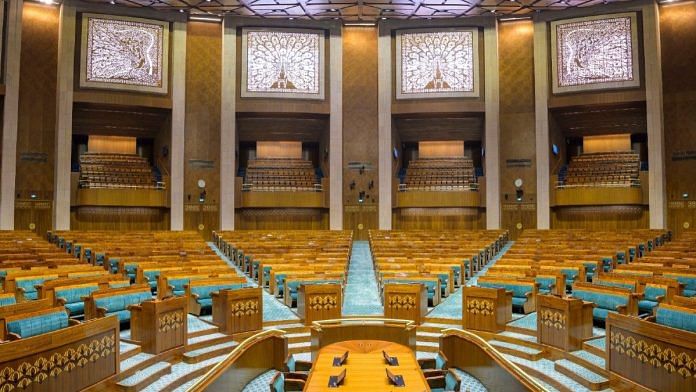Thank you dear subscribers, we are overwhelmed with your response.
Your Turn is a unique section from ThePrint featuring points of view from its subscribers. If you are a subscriber, have a point of view, please send it to us. If not, do subscribe here: https://theprint.in/subscribe/
As the sun sets on the hue and cry that accompanied the recently concluded State Assembly elections across India (namely Rajasthan, Madhya Pradesh, Chhattisgarh, Telangana and Mizoram), a new sort of cacophony has started to make inroads in the political discourse of the country. Political pundits and experts have started pondering upon the so-called “North vs South” divide that is prevalent amongst the Indian populace as an apparent result of their political choices.
The fact that the North vs South bifurcation has plagued India since time immemorial, be it on the type of food one eats, the clothing choices one showcases, the sort of entertainment one consumes, the prevalent language barriers, traditional and cultural differences, various religious beliefs, etc., but these elections have gone on to reinforce this belief, especially with the principal Opposition party, the Indian National Congress, vociferously positioning itself as the “natural choice of the South” and “champion of South Indian rights”.
The BJP has swept the Hindi heartland states of Rajasthan, MP, and Chhattisgarh, and comfortably installed itself as the party of choice across Northern, Central, North-western India and the Northeast, collectively controlling 58% of India’s landmass. On the other hand, the Congress, which during the days of yore (also known as the “Gandhi-Nehru era”) effectively lorded upon the whole of India, has now been relegated to just 3 states- namely Himachal Pradesh, Karnataka, and Telangana, out of which 2 are situated in the South.
Hence, based on this theory, Congress has now started softly building its image as the “only real national contender” in the South, symbolically prevalent in the way the Congress state governments in Telangana and Karnataka have been hailing Soniamma, a colloquial reference to Mrs. Sonia Gandhi, the matriarch and dowager of the Indian National Congress. Moreover, even her heir apparent, Mr. Rahul Gandhi, was ousted from his family bastion of Amethi, Uttar Pradesh during the 2019 Parliamentary elections and is currently representing another southern region- Wayanad, Kerala as its Member of Parliament.
The recent electoral rout that the Congress has faced across the Hindi heartland goes on to paint a picture that the party is struggling to maintain its clout as a national player in India’s political landscape, and is therefore, likely focusing on capitalizing upon its gains across South India, reinforced with its recent formidable wins in the heavyweight states of Telangana and Karnataka. Some party spokespersons have even gone on record to claim that during the upcoming Indian Parliament Elections of 2024, the party would effectively take advantage of the “thicker and clearer North-South boundary line”.
If one throws major Southern regional parties into this complex mix, such as the Dravida Munnetra Kazhagam (DMK) which currently rules Tamil Nadu, the Communist Party (ruling over Kerala), the MDMK and various other smaller regional outfits; these parties have historically been left-leaning and have inclined towards ideologies resonating with the Indian National Congress. Interestingly, many regional outfits across India, have historically played upon regional aspirations, languages, and cultural preferences, et al. to attract their target voter base, and this trend has been conspicuous in the states lying towards the south of India.
Instead of harping upon regional divides and setting foundations for the exploitation of disconnect and detachment amongst the citizen folk of India purely for electoral gains, political organisations would do better by recognizing the importance of “healthy competition” amongst states, which would ultimately lead to betterment for the people of India in the form of more efficient and effective governance.
A country as diverse and dynamic as India, which also boasts of a politically vibrant democracy, needs to maintain a cautious outlook when it comes to upholding harmony and solidarity amongst the various castes, religions and types of people dwelling upon the vast Indian terrain. Robust leadership, effective organisational strategisation and constructive governance are the cornerstones of any successful campaign, be it a political or a corporate one, and individuals and organisations involved in the political sphere will serve society better if they focus on these fundamental principles rather than incorporating baseless and meaningless issues and creating divisions which would impede society’s growth.
In the interest of India’s unity, it would certainly be advisable that political parties indulging in creating an unsaid, but very ostensible, regional divide based on political preferences carried out through a very clear democratic process, realise that these divisions would ultimately serve to sever ties amongst the Indian populace and are not prudent for the nation’s unity or sanctity of Indian democracy as a whole.
These pieces are being published as they have been received – they have not been edited/fact-checked by ThePrint.

